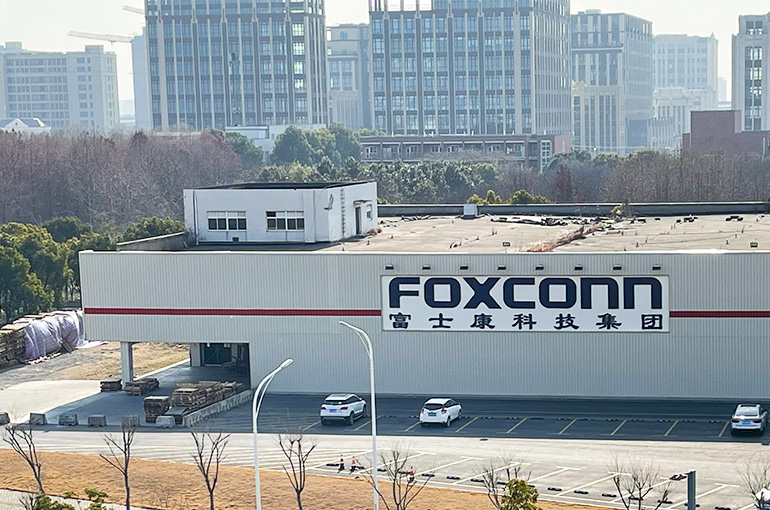 Foxconn Was World's Biggest Server Supplier of 2024, Report Says
Foxconn Was World's Biggest Server Supplier of 2024, Report Says(Yicai) Jan. 3 -- Hon Hai Precision Industry, the Chinese supplier of Apple better known as Foxconn, likely secured the top spot in the global server market last year, according to a new report.
Foxconn's original design manufacturing direct-to-user business had "astronomical growth" last year thanks to surging demand for artificial intelligence-optimized servers from major US cloud providers, market research firm Omdia said in a report released yesterday.
Taipei-based Foxconn will become the first non-US company to rank as the world's largest server vendor since 2018, Omdia pointed out.
Cloud service providers looking to deploy AI computing power prefer collaborations with ODMs, according to research firm Counterpoint. While Dell Technologies, Super Micro Computer, and Hewlett Packard top the AI server sector, ODM direct sales dominate as cloud vendors Microsoft, Amazon, Google, and Meta continue to custom order servers, it added.
Server investment became highly concentrated last year, with customers' capital expenditures on servers reaching USD229 billion, Omdia noted, adding that Microsoft, Amazon, Google, and Meta were the biggest spenders.
The increase in AI server demand has already benefited Foxconn, with the company seeing net profit jump 20 percent to TWD106.4 billion (USD3.2 billion) in the nine months ended Sept. 30 from a year earlier on revenue rising 10 percent to TWD4.7 trillion (USD142.7 billion). Income from AI servers more than tripled to account for over 40 percent of the total server revenue.
Shipments of AI servers will likely continue to grow this year, with the segment expected to contribute more than half of Foxconn's total server revenue, according to the company.
However, the gross profit margins of server manufacturers remain lower than those of AI chip makers in the supply chain's core segments despite the growth in performance.
Foxconn's gross profit margin stood at 6.2 percent in the third quarter, down from 6.4 percent in the prior quarter and 6.7 percent from a year earlier, the company said. The decline was due to shipments of more AI servers with lower gross margins, it noted.
Editor: Martin Kadiev